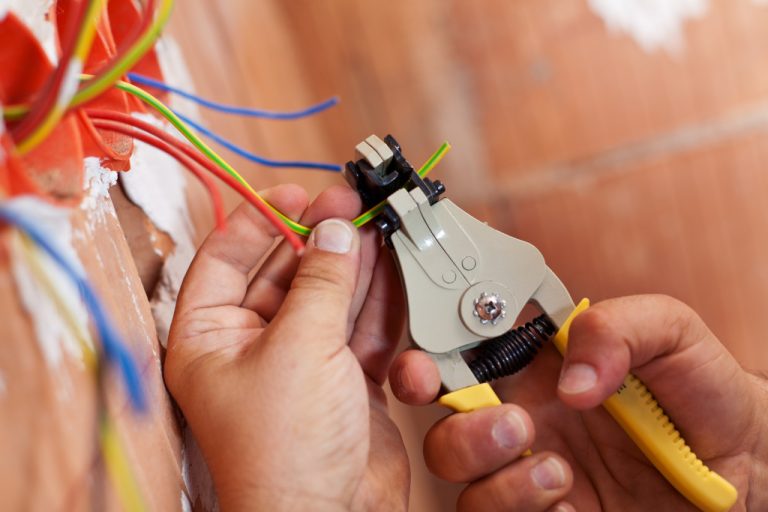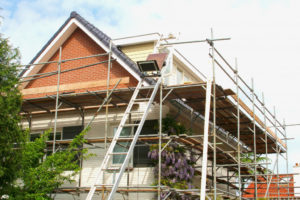As a homeowner, you’re responsible for taking care of your home’s electrical system. This can seem daunting, but with a bit of knowledge and regular maintenance, it’s easy to keep your electrical system in top shape. This article will share some tips on how to take control of your home’s electrical system. With these tips, you’ll be able to save money on your energy bills and avoid potential problems down the road.
Inspect your home’s electrical system regularly.
To ensure your home’s electrical system is functioning safely, properly, and efficiently, inspect it regularly. Doing so can eliminate any hazards, such as frayed wiring or improperly installed outlets.
You can also protect your home from power surges and monitor fluctuations in electricity usage. Electrical inspections are necessary to maintain the entire system’s integrity; an outdated, worn-down system puts your property at risk and may lead to expensive repairs.
Be familiar with your main breaker.
Knowing where your main breaker is located and how to turn it off can be essential in an emergency. The main breaker, also known as the circuit breaker, is a mechanism within an electrical box that disconnects all electricity flowing through the home or building.
Before calling your residential electrician, be sure to check all of your circuit breakers. When a breaker trips, it’s an indication that there is an overload or a short circuit in one of the circuits. Resetting the breaker should help restore power, but if the problem continues, you must call your electrician for help.
It should generally be located in an accessible area near the electrical panel. If you ever discover a fire, outage, or other electrical malfunction, you must know how to shut off the electric power via the main breaker.
Shutting off the main breaker will not only keep you safe but also help keep electricians from getting electrocuted when attempting repairs. Properly locating and understanding your main breaker can give you peace of mind in a potentially dangerous situation.
Replace any old or damaged outlets.

Keeping your home’s outlets up-to-date and in working condition is essential to maintaining a safe and functional environment. Older outlets wear down regularly, and damaged outlets can become a fire hazard if not addressed. Therefore, it is wise to periodically inspect your outlets for any signs of damage or wear and tear and replace any dated or faulty outlets as soon as possible.
Upgrade your home’s fuse box if necessary.
Faulty electrical wiring can be dangerous, so it is essential to ensure your fuse box is up-to-date and properly working. If you live in an older property, it is worth considering whether you should upgrade the fuse box.
An upgrade may include installing additional wiring for more circuits or electric appliances, as well as modern circuit breakers that are safer and provide a better quality of safety against electrical overloads. Make sure that all appropriate safety checks are carried out before you begin any renovations – by doing so, you will ensure that your family can enjoy a safe and secure home environment.
Install GFCI outlets.
Protecting your home from water damage caused by electrical currents should be a priority. Installing GFCI outlets in areas of your home prone to moisture is a simple and effective way to prevent shock and short circuits due to water contact. This includes bathrooms, kitchens, utility rooms, garages, and outdoor areas, as electrical components may come into contact with spilled water or splashing.
GFCI outlets will detect when their circuitry senses an imbalance of electricity between the hot and neutral wires, which can happen if you touch energy when contacted with a water source. When the outlet detects the imbalance, it immediately trips the circuit breaker and shuts off the power supply—thus halting any danger posed to you by this potential hazard. Taking precautions like installing GFCI outlets may help ensure you keep your family safe from any risks associated with moisture where electricity is present.
Be careful when using extension cords and space heaters.
Safety should always come first when using extension cords and space heaters. Extension cords can quickly overheat if overloaded with too many plugs and should not be used for long-term power supply. Space heaters should also be used carefully: make sure to position the heater away from combustible materials and turn it off before leaving the room or going to bed.
In addition, you should inspect electric cords and space heaters periodically for damage; frayed cords can lead to potentially hazardous situations such as shocks or fires. Always remember that using any electrical device safely requires attentiveness and common sense.
Taking control of your home’s electrical system is not as difficult or dangerous as you think. Don’t wait until there’s a problem to start taking care of your home’s electrical needs – inspect it regularly and take action when necessary.













